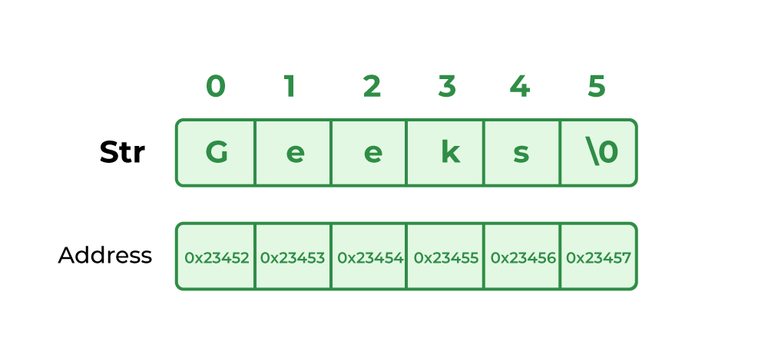What Is Immutable Strings and Just How It Works
In the realm of shows, recognizing the concept of unalterable strings is extremely important for producing safe and secure and robust applications. Immutable strings refer to strings that can not be altered after they are produced, making sure data integrity and predictability within the code.
The Basics of Unalterable Strings
Unalterable strings, as an essential concept in shows, are character series that can not be altered once they are created. This means that once a string is designated a worth, that worth can not be changed. In languages like Python and Java, strings are unalterable objects, resulting in numerous effects in terms of memory monitoring and information honesty.
One of the essential benefits of unalterable strings is that they give a sense of safety in information adjustment. Considering that the material of an unalterable string can not be changed, it guarantees that the initial data continues to be intact, minimizing the danger of unexpected adjustments throughout program execution (Why are strings immutable in Java?). This building also streamlines debugging procedures, as programmers can rely on that when a string is defined, its value will not be accidentally altered
Additionally, unalterable strings help with effective memory usage. When a brand-new string is developed based on an existing one, rather than customizing the initial string, the new value is stored separately. This approach enhances performance by minimizing memory fragmentation and streamlining memory allotment processes. In general, understanding the fundamentals of immutable strings is essential for understanding shows principles and maximizing code performance.
Advantages of Unalterable Strings
Structure upon the safety and security and efficiency benefits of unalterable strings, their advantages extend to improving code integrity and simplifying concurrent programming tasks. By being immutable, strings can not be changed after creation, which gets rid of the risk of unplanned modifications in the information they store. This fundamental immutability makes certain that when a string is created, its worth stays continuous throughout the program's implementation, minimizing the chances of pests brought on by unanticipated modifications.
Additionally, immutable strings contribute to code integrity by making it much easier to reason concerning the state of a program. Since strings can not be altered, developers can rely on that a string will certainly constantly hold the same worth, simplifying debugging and maintenance efforts. This predictability leads to a lot more reliable and steady codebases.

Application in Programs Languages
Within various programs languages, the unification of immutable strings is a basic aspect that influences exactly how information is managed and adjusted within code frameworks. The application of unalterable strings differs across different programming languages, with each language providing its very own systems to sustain this concept.

In contrast, languages like C and C++ do not have integrated assistance for unalterable strings. Developers in these languages should by hand implement immutability by implementing regulations within their code to stop direct modifications to string objects.
Ideal Practices for Functioning With Unalterable Strings
When dealing with immutable strings in shows languages like Java and Python, sticking to best practices ensures efficient and secure information adjustment. One of the vital best methods is to utilize StringBuilder or StringBuffer rather than straight manipulating strings, particularly when managing comprehensive concatenation procedures. These courses offer mutable options for string adjustment, aiding to avoid unneeded memory allocations and improving performance.
Furthermore, when working with sensitive data such as passwords or API keys, it is essential to prevent storing them as ordinary text in unalterable strings. Making use of secure storage original site mechanisms like char varieties or specialized collections for managing sensitive info assists reduce security risks connected with immutable strings.
Real-world Applications and Instances
Discovering functional implementations of unalterable strings in different industries exposes their considerable effect on information honesty and system integrity. In the medical care field, immutable strings play a critical function in making sure the safety and discretion of patient information. By stopping unapproved modifications to sensitive details such as clinical records and prescriptions, unalterable strings assist keep compliance with rigorous privacy policies like HIPAA.
Banks likewise take advantage of the immutable nature of strings to boost the safety and security of consumer information and deal records. Unalterable strings help protect against fraud and unapproved alterations to economic info, giving a robust defense against cyber threats and ensuring the depend on and self-confidence of customers.

Verdict
In final thought, immutable strings are taken care of and stable sequences of characters that offer benefits such as string security and improved performance in programming. They are carried out in numerous shows languages to make sure data honesty and safety. Ideal techniques for check this site out collaborating with immutable strings include preventing direct alterations and making use of techniques that return brand-new string items. Real-world applications of immutable strings consist of data encryption, caching, and string manipulation jobs.
Immutable strings refer to strings that can not be modified after they are developed, making sure data honesty and predictability within the code. When a new string is developed based on an existing one, rather than modifying the original string, the new worth is saved separately.In languages like Java and Python, strings are unalterable by default, implying that as soon as a string things is created, its worth can not be transformed - Why are strings immutable in Java?. Finest techniques for working with immutable strings include avoiding direct adjustments and utilizing techniques that return brand-new string items. Real-world applications of immutable strings include information file encryption, caching, and string click this link adjustment tasks